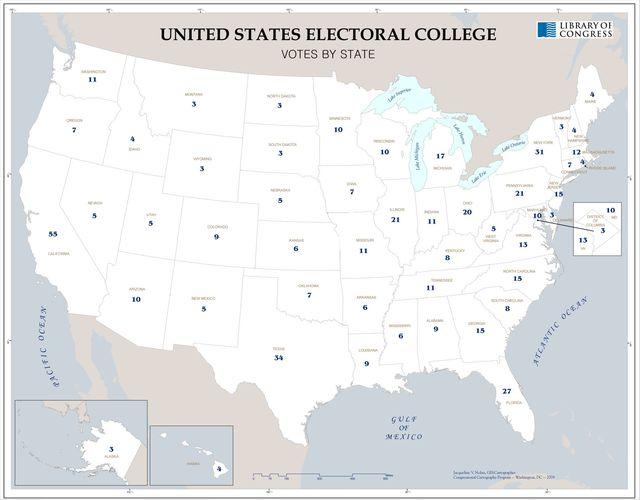A Full Bird Exclusive
May 02, 201905/02/2019 From the Right
Why we still need the Electoral College
Nearly every Democratic candidate running for president is calling for the elimination of the Electoral College or is at least calling for a debate on its merits. Democratic presidential candidate, Elizabeth Warren, would like to abolish the electoral college. At a recent town hall in Mississippi, she called President Donald Trump’s 2016 victory, “not exactly the sign of a healthy democracy.” Eliminating the Electoral College is becoming increasingly popular among voters. According to a Gallup poll taken after the 2016 election, 81% of democrats and democratic leaning independents favor the popular vote. Most people today say they prefer the idea of a popularly elected president, as opposed to one elected by the Electoral College. "Every vote matters" or "one person, one vote" are common refrains. On its face, that sounds logical. In a democracy, shouldn't the candidate who gets the most votes win the election?
It's easy to understand why a lot of Democrats are in favor of a national popular vote. In the most recent election, Hillary Clinton won the popular vote by over 2.8 million votes yet lost the election to President Donald Trump due to the Electoral College. Democrats believe the reasons the Founders created the Electoral College do not hold up in today's environment. Voters are better informed, and it is no longer necessary for electors to vote on behalf of the citizenry. They also believe the Electoral College gives unfair influence to swing states. It seems unfair to have all electors voting for one candidate in states like Ohio, Iowa, Florida and North Carolina where the actual vote count is historically very close. Lastly, Democrats believe that large states are unfairly underrepresented when it comes to electoral votes.
An analysis of the merits of the Electoral College requires a look at the reasons our Founding Fathers created it in the first place. At the time of the writing of the Constitution, states’ rights and autonomy were very important. The states with small populations were reluctant to join the Union if states with large populations would control the entire country simply because of the popular vote. The Founders were as concerned about populism as they were about monarchy. The Electoral College helped to level the playing field so that the country was not ruled by large urban centers. The Electoral College gave voting power to all states, regardless of size.

But what about democracy? Shouldn't control of our government come directly from the majority of the people? The problem here is that the United States is not a direct democracy. We are a republic; the most significant difference being our Constitution. The Constitution gives individuals liberty and certain inalienable rights that cannot be taken away by mob rule. The majority cannot impose its will on the minority, which undeniably is a very good thing.
If our presidential elections were determined by a national popular vote, a person could be elected who was actually rejected by most of the states. The following example by Dan Mclaughlin of the National Review illustrates this point: Suppose a Republican won 48 states with a 54 percentage to 46 percentage margin. A Democrat won California, New York and D.C. with a 75 percentage to 25 percentage margin, which is common based on recent elections. That equates roughly to a popular vote victory of 1.95 million votes for the Democrat. A candidate could win having been rejected by 48 of the 50 states. This might be an extreme example, but the point here is that the concerns of a very large segment of the country could feasibly go unheard and unaddressed with the national popular vote.
In order to eliminate the Electoral College, an amendment to the Constitution is required. An amendment to the Constitution would require a two-thirds majority vote in both the House of Representatives and the Senate. This makes it a near impossibility. There is one solution that helps to address the concerns of the Democratic Party. They believe that very large states like California are underrepresented. The solution is to expand the House of Representatives, which would in turn give greater electoral votes to large states and dilute the power of the votes smaller states get from having two U.S. Senators. This seems like a more plausible solution. It rebalances the Electoral College by giving states with very large populations greater representation and voting power.
Although tempting, eliminating the Electoral College would be a mistake. The Electoral College ensures that presidential candidates must work hard to earn a base of support across broad, politically diverse areas of the country. Abolishing the Electoral College now might satisfy some who are upset with the results of the last election. However, while not perfect, the Electoral College has served us well in ensuring liberty for all Americans.


